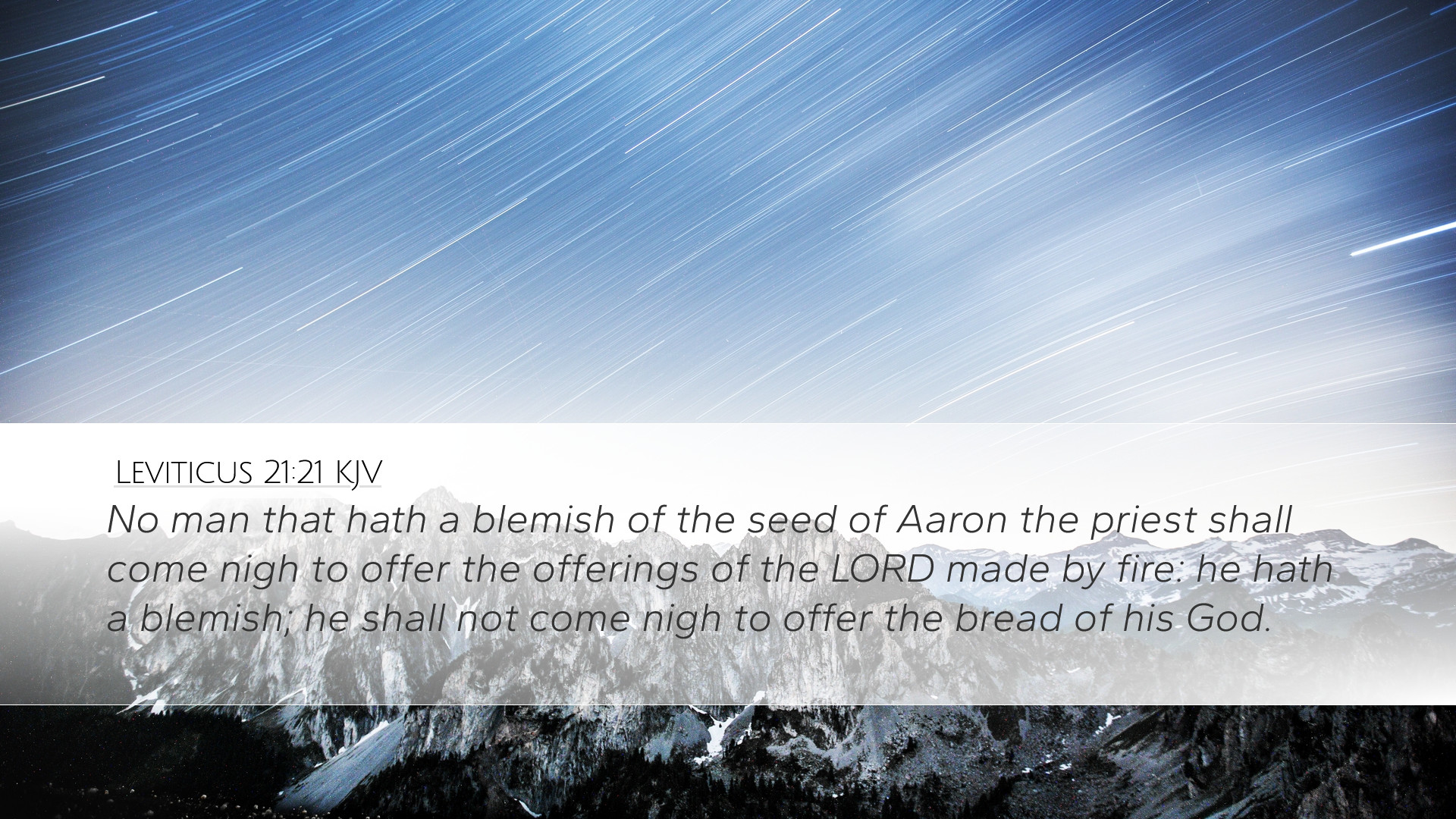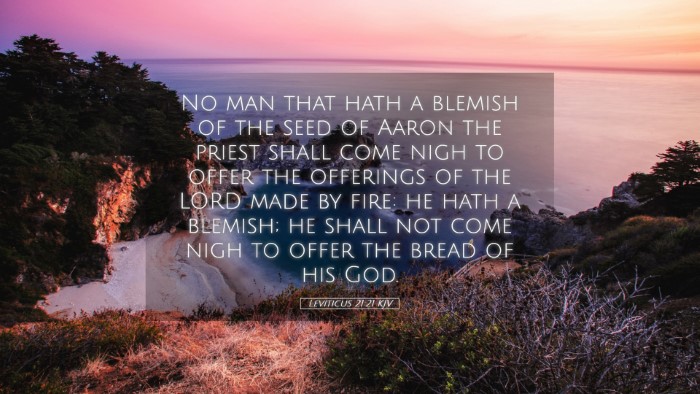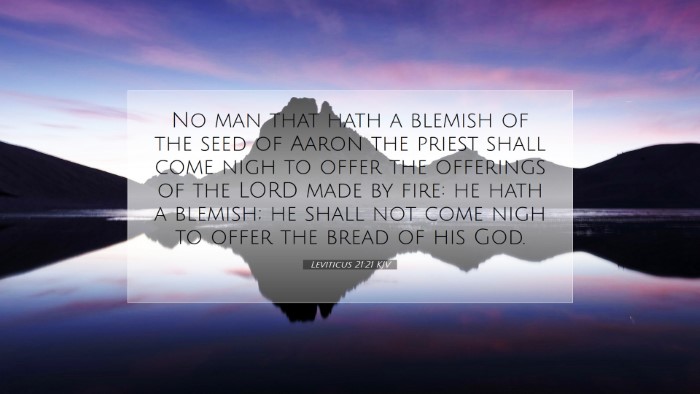Commentary on Leviticus 21:21
Leviticus 21:21 (KJV): "No man that hath a blemish of the seed of Aaron the priest shall come nigh to offer the offerings of the Lord made by fire: he hath a blemish; he shall not come nigh to offer the bread of his God."
Introduction
The book of Leviticus addresses the holiness and purity required for those who serve in the presence of God, particularly the priests. Leviticus 21:21 outlines specific restrictions regarding priests with physical blemishes and their eligibility to approach God in their role as mediators.
Comments on the Verse
1. The Nature of the Blemish
Matthew Henry notes that the term “blemish” refers to any physical deformity or defect that could hinder the priest’s ideal representation of holiness and perfection. This physical standard represents a broader spiritual principle; the priest's role requires purity, as he is to symbolize the perfection of Christ ultimately.
2. The Seed of Aaron
Albert Barnes emphasizes the importance of lineage in this context. Only descendants of Aaron, who was set apart for priestly duties, were allowed to serve in the temple. This restriction underscores the necessity of holiness not just in actions but in lineage, reflecting the seriousness of priestly service.
3. The Purpose of the Restrictions
Adam Clarke argues that these restrictions serve to elevate the perception of holiness among the people. Priests were meant to model the sanctity required of those who serve God, hence disqualification due to physical blemishes was both a matter of maintaining God's standards and a sign of the spiritual reality of perfection.
Spiritual Symbolism
The blemishes signify the imperfections inherent in humanity, and by disqualifying those with blemishes, God points to His ultimate plan where Christ, who is without blemish, becomes the perfect High Priest (Hebrews 7:26). The imperfections of the priests serve to highlight the necessity of a Savior.
Implications for Pastors and Theologians
This verse has significant implications for contemporary ministry and theological study. It raises questions about how we prepare individuals for leadership roles and how we perceive worthiness in ministry. Here are some considerations:
- Holiness in Leadership: Leaders within the church must uphold a standard that reflects their commitment to holiness.
- Redemption and Restoration: The concept of blemishes can lead to discussions about grace and redemption, emphasizing that even those who might seem unqualified can find a place in Christ's ministry, advocating for love and acceptance.
- Preparation for Service: This verse may prompt discussions on training and equipping church leaders with spiritual and character integrity rather than merely relying on natural abilities or charismatic traits.
Theological Insights
This text invites deeper theological reflection on God's character and the nature of His expectations:
- The Holiness of God: This passage reinforces God's holiness; He demands purity and carefulness in how we approach Him.
- Human Limitations: It highlights the reality of human imperfection and the need for atonement, ultimately fulfilled in Christ.
- Typology and Christology: The priestly restrictions serve as a type that points to Christ, the ultimate High Priest who is flawless and intercedes for humanity.
Conclusion
Leviticus 21:21 serves as a reminder of the seriousness with which God views the ministry and the personal purity expected of those who serve Him. It encapsulates a vital lesson that while human limitations exist, through Christ, believers are not just priests in a general sense but are called to serve with integrity and reflect the holiness of God in their lives and ministry.
The dialogue between the Old Testament requirements and New Testament grace provides a rich field for pastoral application and theological study. Understanding the weight of these verses can help guide the modern church's approach to leadership and discipleship.


